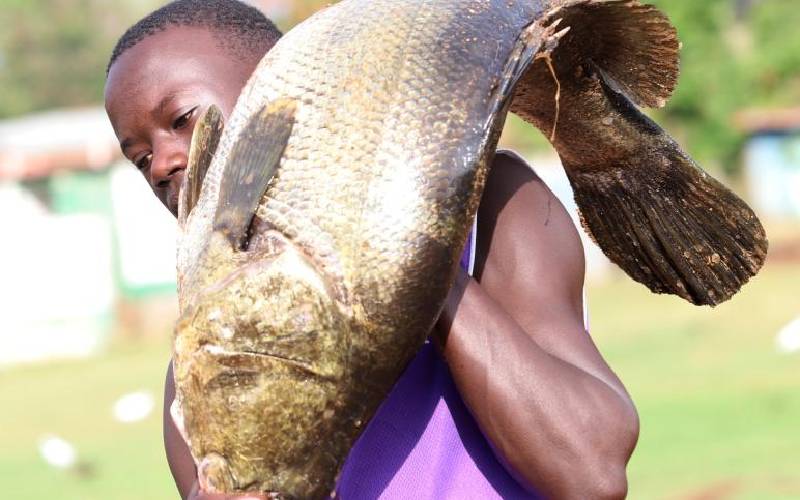×
The Standard e-Paper
Stay Informed, Even Offline

Don Bosco, a fisherman takes his catch of Nile perch for weighing in Kisumu on December 1, 2020. [Denish Ochieng,Standard]
It’s 11:00 am at Nambo Beach and Fredrick Otieno, a Nile perch fish broker is busy running errands since some three boats have just landed. Some customers have come to sell him fish maws (locally known as mondo).